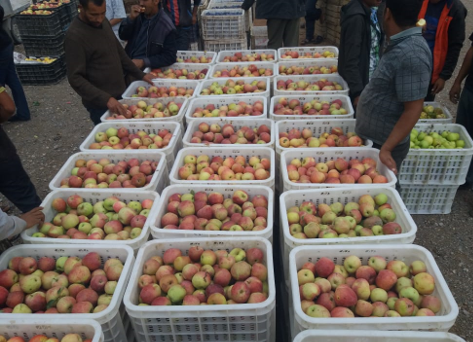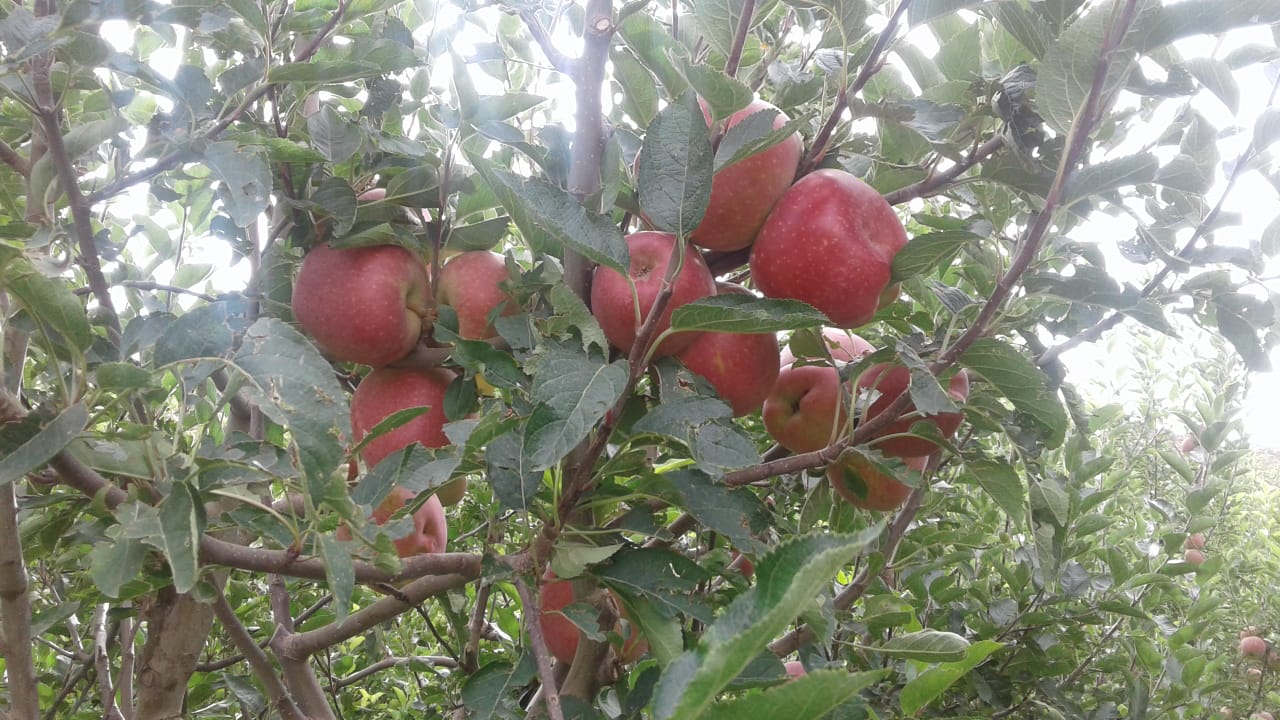In February 2014, 265 farmers in the commune of Sidi Ayad (Rich) formed a cooperative. “3,000 tons of apples are harvested every year, but the production is of low quality, the picking, storage and transport conditions are poor, and the sales conditions are unfavorable:
- 80% of the apples are sold on trees at 0.15-0.40 €/kg
- 15% in the souk at 0.25-0.60 €/kg
- 5% to the middlemen, after storage, at 0.60-1 €/kg”.
In order to overcome the difficulties in adding value to the apples, the cooperative has undertaken various projects:
– the improvement of the production, in quantity but also in quality, in order to (i) facilitate the preservation of apples and (ii) access to more remunerative markets.
– the conservation of the apples (refrigeration unit operational in 2021) so that the access to more profitable markets is given.
– the transformation into juice and vinegar (operational unit in 2021) to add value to lower quality apple.
In this context, the plastic crate rental service was launched in 2018. It contributes to the first two projects: fruit growers improve the quality of apples through better harvesting and transport practices as well as they negotiate better selling prices for part of their production by sorting apples; etc.
3,500 crates with a capacity of 20 kg were bought in 2018.
- 38 fruit growers rented the crates in 2018, for a turnover of €1,800 at the cooperative level.
- 35 fruit growers in 2019, for €2,500: the same box could be rented 2 months in a row to 2 different fruit growers.
After two campaigns of operation, a first assessment shows that the service is well managed and that fruit growers are satisfied. However, it affects only 4% of the production of the cooperative’s members and therefore remains largely insufficient. Even if the cooperative finally decided to rent the crates only for apples (they could also be used for apricots and olives since the seasons are different), the revenue already generated allows the service to develop with the purchase of 1000 additional crates as of May 2020 (against 800 initially planned).
The current challenge is to invest in more crates to meet members demand and to equip the refrigeration unit with enough tool by the time it becomes operational (50,000 crates).





